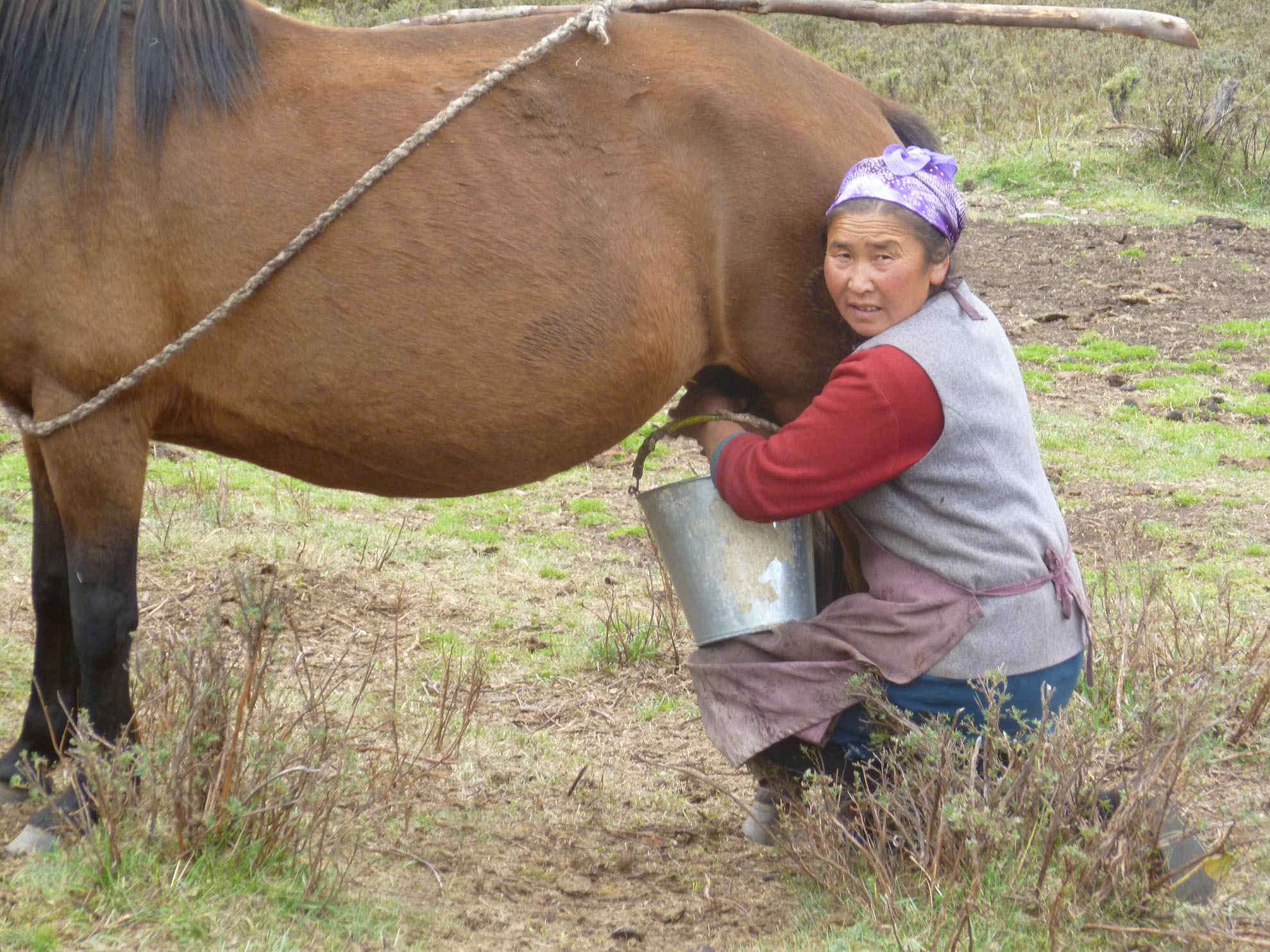 China’s major grassland policies come from the perspective of a crop-growing agricultura culture. The country has had considerable success improving agricultural productivity using tools from the “green revolution” and the many other advances in agricultural technology to increase food production. These technologies include the use of chemical fertilizers, irrigation, and improved livestock and seedstock. From this point of view, an explicit goal for pastoral areas has been to use technology to increase livestock production and grassland conditions on arid rangelands. As stated in China Daily’s “Scientific Development of China”, from “ 2000 to 2005, over nine billion yuan was earmarked for this purpose from the central budget to support the projects of natural pasture vegetation recovery and construction, the building of pasture fences and forage grass seed bases, the halting of herding for vegetation recovery, and grassland eco-construction to control the duststorm sources threatening the Beijing-Tianjin area.”
China’s major grassland policies come from the perspective of a crop-growing agricultura culture. The country has had considerable success improving agricultural productivity using tools from the “green revolution” and the many other advances in agricultural technology to increase food production. These technologies include the use of chemical fertilizers, irrigation, and improved livestock and seedstock. From this point of view, an explicit goal for pastoral areas has been to use technology to increase livestock production and grassland conditions on arid rangelands. As stated in China Daily’s “Scientific Development of China”, from “ 2000 to 2005, over nine billion yuan was earmarked for this purpose from the central budget to support the projects of natural pasture vegetation recovery and construction, the building of pasture fences and forage grass seed bases, the halting of herding for vegetation recovery, and grassland eco-construction to control the duststorm sources threatening the Beijing-Tianjin area.”
 A policy of dividing common herding areas managed by villages into smaller parcels held by households began in the 1980’s and is believed by many scholars of pastoralism to have exacerbated problems of over-grazing because of a loss of traditional mobility, increases in livestock numbers, and the difficulty of managing all aspects of husbandry with only the labor of one family, among other factors (Li and Huntsinger 2011). The most widespread policies in our study area since then appear to be fencing, limiting animal numbers, and elimination of grazing from many areas, including relocating herders to residential villages, sometimes with small garden plots and areas for confined feeding of stock and a small annual payment. Improving livestock production has run into the intractable, “nonequilibrium” dynamics of the rangelands themselves—a lack of water, and the high variation in rainfall and temperatures, severely constrains the capacity to implement technology to increase production—
A policy of dividing common herding areas managed by villages into smaller parcels held by households began in the 1980’s and is believed by many scholars of pastoralism to have exacerbated problems of over-grazing because of a loss of traditional mobility, increases in livestock numbers, and the difficulty of managing all aspects of husbandry with only the labor of one family, among other factors (Li and Huntsinger 2011). The most widespread policies in our study area since then appear to be fencing, limiting animal numbers, and elimination of grazing from many areas, including relocating herders to residential villages, sometimes with small garden plots and areas for confined feeding of stock and a small annual payment. Improving livestock production has run into the intractable, “nonequilibrium” dynamics of the rangelands themselves—a lack of water, and the high variation in rainfall and temperatures, severely constrains the capacity to implement technology to increase production— irrigation is not possible over vast arid rangelands, and without water, improved seeds and fertilizers are of no use. Supported in part by a Li Ka Shing grant for Women in Science in 2013, Professor Li Wenjun and I have been working in the great rangelands of China to examine pastoral adaptations in changing social, economic, and ecological conditions. Click here for our first paper: Tragic feedbacks, in Ecology and Society.
irrigation is not possible over vast arid rangelands, and without water, improved seeds and fertilizers are of no use. Supported in part by a Li Ka Shing grant for Women in Science in 2013, Professor Li Wenjun and I have been working in the great rangelands of China to examine pastoral adaptations in changing social, economic, and ecological conditions. Click here for our first paper: Tragic feedbacks, in Ecology and Society.
A complete list of papers and CV are available at the faculty site.